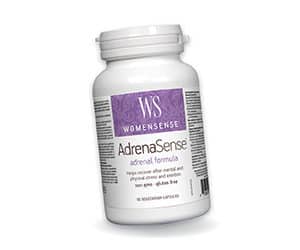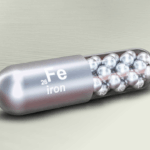
Not all fibre is created equal. Ever heard of FODMAPs? Funny word, but it’s the key reason why many people suffer from constipation, diarrhea, gas, and bloating.
FODMAPs are “fermentable oligosaccharides, disaccharides, monosaccharides, and polyols.” (Now you see why there’s an acronym.) These are certain types of carbohydrates that some individuals find difficult to digest. When we adjust our diets to include fibre that has lower levels of the FODMAPs, we make the job of our digestive tract easier and reduce the occurrence of unpleasant symptoms such as bloating, abdominal pain, constipation, and diarrhea.
This is important news for people suffering from irritable bowel syndrome (IBS), which has been shown to afflict approximately 14% of females and 9% of males worldwide. In at least 10 randomized comparative trials, it has been shown that simply adjusting to a low-FODMAP diet can help an estimated 50–80% of IBS patients achieve improvement in their condition.
This is big news! IBS is one of the most common and growing diagnoses on the planet, and many patients never get an adequate response to treatment.
So, what’s missing in a low-FODMAP diet? Better digestible fibre. Fibres such as inulin, bran, and wheat are high-FODMAP shortchain fermentable carbohydrates which are bad for IBS and the digestive system. Inulin is another inexpensive ingredient that food companies use to make a “fibre claim” on their labels (though it is argued that many of these so-called fibres aren’t really fibre).
Instead, look for low-FODMAP ingredients such as those certified by Monash University, and pay attention to the FODMAP content in your food choices. Below are some examples of high- and low-FODMAP foods. For a more complete list, see ibsdiets.org
High-FODMAP foods to avoid for improved intestinal health:
Vegetables:
- artichokes
- asparagus
- beans
- cabbage
- cauliflower
- celery
- garlic
- mushrooms
- onions
- peas
- scallions
- soybeans
Fruits:
- apples
- apricots
- avocados
- blackberries
- cherries
- grapefruit
- mango
- nectarines
- peaches
- pears
- plums
- prunes
- raisins
- watermelon
Grains and nuts:
- barley
- bran
- cashews
- couscous
- pistachios
- rye
- semolina
- spelt
- wheat
Milk Products:
- buttermilk
- cow’s milk
- cream
- goat’s milk
- rice milk
- sheep’s milk
- soy milk
Low-FODMAP foods to choose for improved intestinal health:
Vegetables:
- bamboo shoots
- bean sprouts
- celery
- chickpeas
- corn/popcorn
- cucumber
- eggplant
- green beans
- green peppers
- kale
- lettuce
- parsnips
- potatoes
- pumpkin
- red peppers
- squash
- sweet potatoes
- tempeh*
- tofu*
- tomatoes
Fruits:
- bananas
- blueberries
- citrus fruits
- clementines
- cranberries
- grapes
- kiwi
- melon
- papaya
- passion fruit
- pineapple
- raspberries
- rhubarb
- strawberries
Grains and nuts:
- almonds
- Brazil nuts
- buckwheat
- chestnuts
- hazelnuts
- macadamia
- oats
- peanuts
- pecans
- quinoa
- rice
- walnuts
Seeds:
- chia
- poppy
- pumpkin
- sesame
- sunflower
All of these low-FODMAP foods should be consumed in moderation, of course, and the best kind of food to buy is always organic.
* Some tofu and tempeh are good for low-FODMAP protein.














